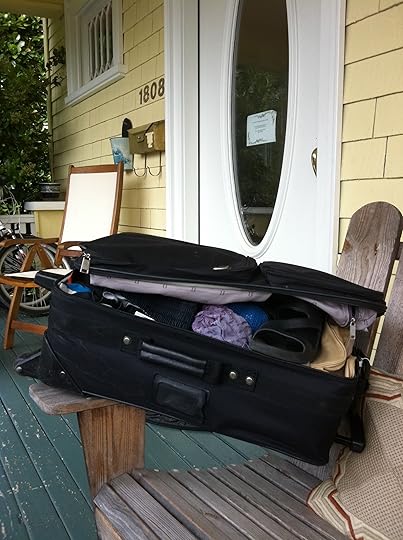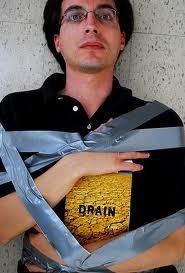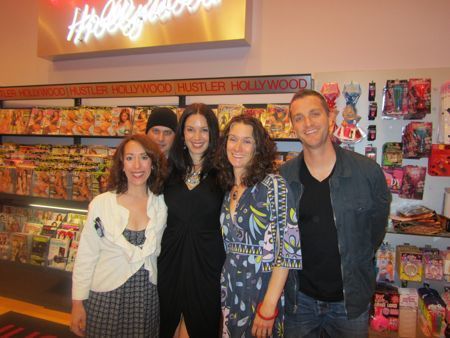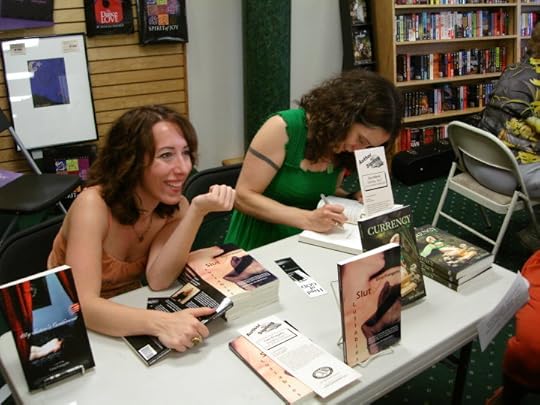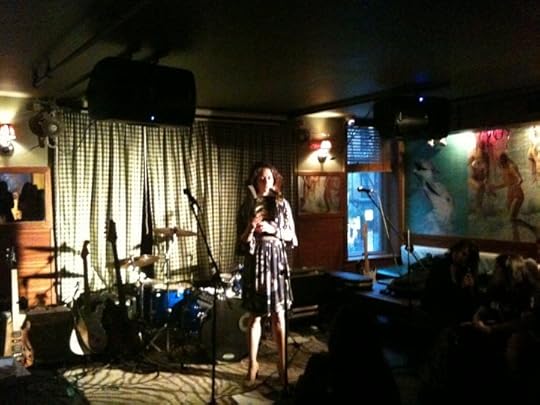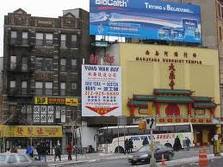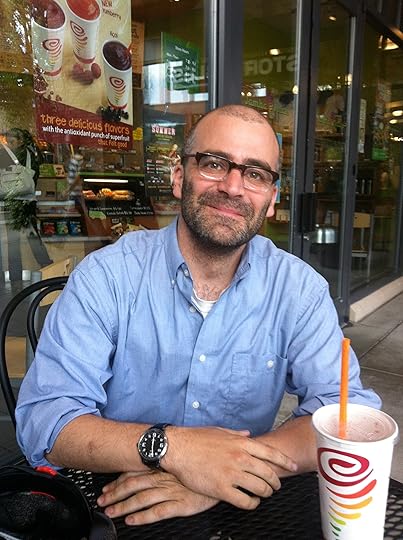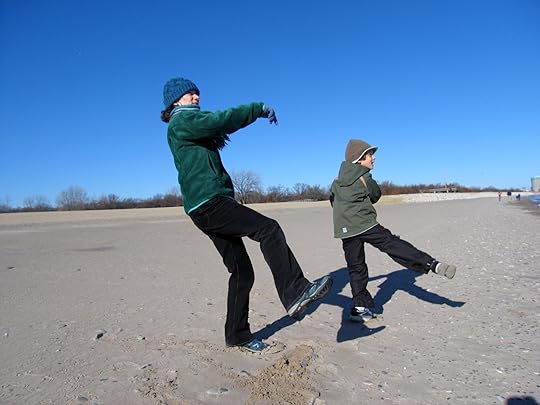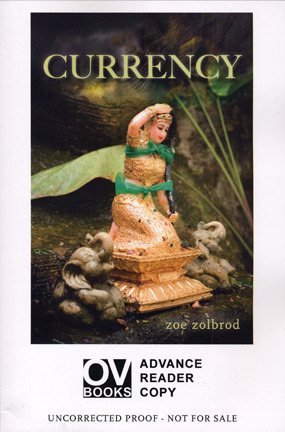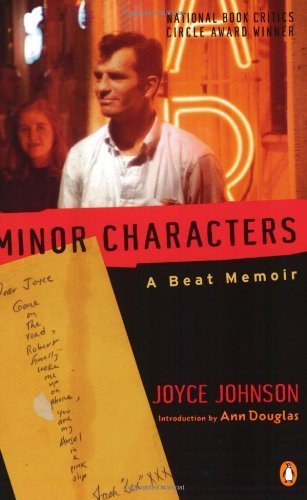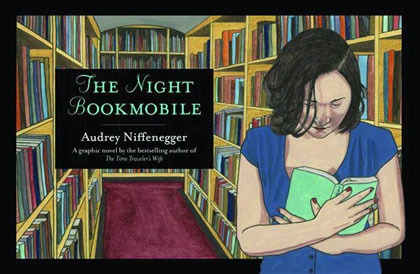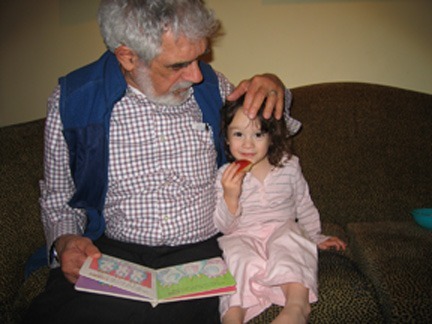Zoe Zolbrod's Blog, page 2
July 7, 2011
CURRENY is Traveling. I’m Staying Home.
 This spring, we went back to Isla Mujeres for our second time as a family and my third time overall. I left a copy of Currency at PocNa, the hostel where I stayed when I visited the island as a backpacker round about 1995. In the book, I pasted the same note that I have in the other copies I’ve sent out into the world:
This spring, we went back to Isla Mujeres for our second time as a family and my third time overall. I left a copy of Currency at PocNa, the hostel where I stayed when I visited the island as a backpacker round about 1995. In the book, I pasted the same note that I have in the other copies I’ve sent out into the world:
As the author of this novel, it’s one of my great hopes for Currency that people will discover it while on the road. To that end, I’ve given some copies to traveler-types and asked them to leave the books, when they’re through, where other travelers can find them. If you’ve left or found Currency, I would love it if you’d leave a comment at http://zoezolbrod.com/the-traveling-book/. Happy travels!
I think there are about ten or twelve books that are floating around the globe right now, with most of them, fittingly, in Southeast Asia. I’ve received only one note from a stranger who has picked up a copy completely by chance, but the story that woman told, in the comments here, was worth way more than a box full of books; it put me on a bus from Cambodia to Bangkok and then on route to Nepal. O World! I miss you! And Piv and Robin, I miss you too. When the two of them come alive for other people, it helps ease the sting—or maybe it just makes it more exquisite, which is perhaps the better goal. If anyone reading this is about to go on a trip and wants a copy of Currency to read and leave behind for someone else, let me know, and I’ll send you a copy
 I felt sort of like a spy in PocNa, wandering around looking for the lending library I knew they’d have, wondering at the way things change and they don’t, checking out the tanned faces bent over glowing netbooks in the shade of the main courtyard. (So many netbooks.) I inferred that a lot of hostelers were using the cushion of Isla and PocNa to recover from more strenuous travels, maybe staying on longer than they’d planned at a place with good wi-fi and a little night life. In 1995, still pretty fresh from the pristine beaches of Ko Chang, each of which could only be reached by boat, none of which featured accommodation other than thatched huts, Isla Mujeres felt urban to me, and almost unbearably commercial. I had never seen yachts and pleasure craft docked near a pier, and I had never had to pass by so many hulking hotels to get to a guesthouse.
I felt sort of like a spy in PocNa, wandering around looking for the lending library I knew they’d have, wondering at the way things change and they don’t, checking out the tanned faces bent over glowing netbooks in the shade of the main courtyard. (So many netbooks.) I inferred that a lot of hostelers were using the cushion of Isla and PocNa to recover from more strenuous travels, maybe staying on longer than they’d planned at a place with good wi-fi and a little night life. In 1995, still pretty fresh from the pristine beaches of Ko Chang, each of which could only be reached by boat, none of which featured accommodation other than thatched huts, Isla Mujeres felt urban to me, and almost unbearably commercial. I had never seen yachts and pleasure craft docked near a pier, and I had never had to pass by so many hulking hotels to get to a guesthouse.
But there were recognizable sorts at the hostel, and I quickly made the recognizable alliances, and with them I ended up smoking pot and traversing the more local side of the island for late-night conch and cheap snorkeling. Having found the bookshelf for freebies and slipped Currency among the offered titles—with the endless stream of wi-fi and the portable screens, how many fewer books do travelers read?—I headed back to the street, and I took great pleasure in standing in the entryway remembering the humiliation of having to be rescued from a communication problem at check-out by a know-it-all who’d annoyed me on these jaunts and who spoke Spanish. Mmmmmm nostalgia. I’m hooked on it. The then-and-now simultaneity is sometimes so physical it gives me vertigo, and I put my hand on the cement wall to steady myself. Meanwhile, Mark was waiting in the golf cart outside, dealing with the squabbling kids so I could have my moment. It was on the same island two years ago that he helped me come up for the name of this blog, The Next Youth Hostel. Get it? The journey, the journey. Still on it, in our way.
I haven’t been updating this blog much because my world keeps turning. Currency‘s been out over a year, so I’m not promoting it. I never intended the blog as a place to give personal updates, but to the extent that I did, now I use Facebook more than ever. And when I feel the call to write an essay, I write for The Nervous Breakdown because I love the community there, not to mention the eyeballs. I’ve posted essays about the my mom being on Facebook, the gang rape of the eleven-year-old girl, my reaction to the proposed opening of a breastaurant in my bucolic town, and my challenges with time.
I am quite time-challenged. I’m working on a new project—a memoirish type exploration that I’m vexed by and drawn toward—and every day I feel its hungry rumble for hours I don’t have. A fair number of those I need just to sit chin in hand and stare off into the past. What can I say? Pondering formative experiences is so attractive to me. This time the setting is closer to home. There’s a lot about sex and childhood and gender issues, those perennial favorites.








CURRENY is Traveling. I'm Staying Home.
 This spring, we went back to Isla Mujeres for our second time as a family and my third time overall. I left a copy of Currency at PocNa, the hostel where I stayed when I visited the island as a backpacker round about 1995. In the book, I pasted the same note that I have in the other copies I've sent out into the world:
This spring, we went back to Isla Mujeres for our second time as a family and my third time overall. I left a copy of Currency at PocNa, the hostel where I stayed when I visited the island as a backpacker round about 1995. In the book, I pasted the same note that I have in the other copies I've sent out into the world:
As the author of this novel, it's one of my great hopes for Currency that people will discover it while on the road. To that end, I've given some copies to traveler-types and asked them to leave the books, when they're through, where other travelers can find them. If you've left or found Currency, I would love it if you'd leave a comment at http://zoezolbrod.com/the-traveling-book/. Happy travels!
I think there are about ten or twelve books that are floating around the globe right now, with most of them, fittingly, in Southeast Asia. I've received only one note from a stranger who has picked up a copy completely by chance, but the story that woman told, in the comments here, was worth way more than a box full of books; it put me on a bus from Cambodia to Bangkok and then on route to Nepal. O World! I miss you! And Piv and Robin, I miss you too. When the two of them come alive for other people, it helps ease the sting—or maybe it just makes it more exquisite, which is perhaps the better goal. If anyone reading this is about to go on a trip and wants a copy of Currency to read and leave behind for someone else, let me know, and I'll send you a copy
 I felt sort of like a spy in PocNa, wandering around looking for the lending library I knew they'd have, wondering at the way things change and they don't, checking out the tanned faces bent over glowing netbooks in the shade of the main courtyard. (So many netbooks.) I inferred that a lot of hostelers were using the cushion of Isla and PocNa to recover from more strenuous travels, maybe staying on longer than they'd planned at a place with good wi-fi and a little night life. In 1995, still pretty fresh from the pristine beaches of Ko Chang, each of which could only be reached by boat, none of which featured accommodation other than thatched huts, Isla Mujeres felt urban to me, and almost unbearably commercial. I had never seen yachts and pleasure craft docked near a pier, and I had never had to pass by so many hulking hotels to get to a guesthouse.
I felt sort of like a spy in PocNa, wandering around looking for the lending library I knew they'd have, wondering at the way things change and they don't, checking out the tanned faces bent over glowing netbooks in the shade of the main courtyard. (So many netbooks.) I inferred that a lot of hostelers were using the cushion of Isla and PocNa to recover from more strenuous travels, maybe staying on longer than they'd planned at a place with good wi-fi and a little night life. In 1995, still pretty fresh from the pristine beaches of Ko Chang, each of which could only be reached by boat, none of which featured accommodation other than thatched huts, Isla Mujeres felt urban to me, and almost unbearably commercial. I had never seen yachts and pleasure craft docked near a pier, and I had never had to pass by so many hulking hotels to get to a guesthouse.
But there were recognizable sorts at the hostel, and I quickly made the recognizable alliances, and with them I ended up smoking pot and traversing the more local side of the island for late-night conch and cheap snorkeling. Having found the bookshelf for freebies and slipped Currency among the offered titles—with the endless stream of wi-fi and the portable screens, how many fewer books do travelers read?—I headed back to the street, and I took great pleasure in standing in the entryway remembering the humiliation of having to be rescued from a communication problem at check-out by a know-it-all who'd annoyed me on these jaunts and who spoke Spanish. Mmmmmm nostalgia. I'm hooked on it. The then-and-now simultaneity is sometimes so physical it gives me vertigo, and I put my hand on the cement wall to steady myself. Meanwhile, Mark was waiting in the golf cart outside, dealing with the squabbling kids so I could have my moment. It was on the same island two years ago that he helped me come up for the name of this blog, The Next Youth Hostel. Get it? The journey, the journey. Still on it, in our way.
I haven't been updating this blog much because my world keeps turning. Currency's been out over a year, so I'm not promoting it. I never intended the blog as a place to give personal updates, but to the extent that I did, now I use Facebook more than ever. And when I feel the call to write an essay, I write for The Nervous Breakdown because I love the community there, not to mention the eyeballs. I've posted essays about the my mom being on Facebook, the gang rape of the ten-year-old girl, my reaction to the proposed opening of a breastaurant in my bucolic town, and my challenges with time.
I am quite time-challenged. I'm working on a new project—a memoirish type exploration that I'm vexed by and drawn toward—and every day I feel its hungry rumble for hours I don't have. A fair number of those I need just to sit chin in hand and stare off into the past. What can I say? Pondering formative experiences is so attractive to me. This time the setting is closer to home. There's a lot about sex and childhood and gender issues, those perennial favorites.








January 1, 2011
Top Ten Things from My 2010 Book Tour
For me, 2010 will always be The Year My Book Came Out. (Hopefully someday I'll need to add the modifier first to that sentence, but it won't be anytime soon.) One of the best parts of the publishing experience was the book tour. I got to leave behind my day job and my role as mama and be an author on the road. I got to reconnect with some of my oldest friends and meet new literary peeps. I got to visit cities I've never been to and revisit some I once knew well. My trusty suitcase was pulled over so many sidewalks and moving walkways and squeezed into so many overhead compartments and crowded trunks that it finally gave out in Portland, and I had to carry it in my arms like a baby to my lodging in Seattle. A couple days later I overpaid for a new bag and was on my way again.*
All year, I've been meaning to write about some of the highlights of the trips–the outdoor coffee shop in Austin that bore more than a passing resemblance to a backpacker cafe in Bangkok; the experience Brenna and I had at the awesome Olympia spa in Los Angeles; the waves of nostalgia I felt tromping around Seattle's Capital Hill, where I sort of lived for half a summer a thousand years ago–but I never got around to it. When Dzanc asked its authors if they wanted to submit top ten lists for their blog, I knew I wanted to do something about the book tour, especially since so many of my reading memories from this year are related to the trips I took and the writers I read with. Here's what I submitted to Dzanc.
1. Best Legendary Reading Series in Which I Had the Honor to Participate: Gist Street Reading Series, in Pittsburgh, Pennsylvania.
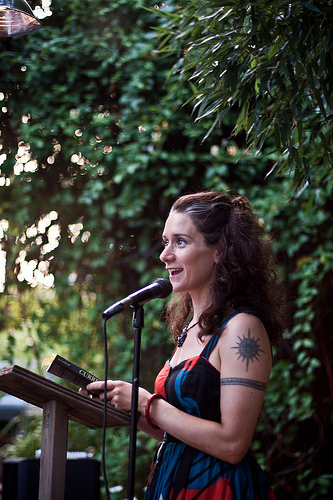 The Gist Street crew invited Dzanc to be the featured small press at their annual (and final) cookout extravaganza and packed a gorgeous urban garden with a sold-out crowd and tables full of amazing food. Lights sparkled in the bamboo and laugher rippled in the dusk. Truly, it's hard to be hyperbolic about how lovely it was. As an extra bonus, I procured there the best book of poetry I read all year, The Giving of Pears, by Abayomi Animashaun.
The Gist Street crew invited Dzanc to be the featured small press at their annual (and final) cookout extravaganza and packed a gorgeous urban garden with a sold-out crowd and tables full of amazing food. Lights sparkled in the bamboo and laugher rippled in the dusk. Truly, it's hard to be hyperbolic about how lovely it was. As an extra bonus, I procured there the best book of poetry I read all year, The Giving of Pears, by Abayomi Animashaun.
2. Best Reading Series I'd Not Heard of Before in Which I Had the Honor to Participate: Cherry Bomb, in Grand Rapids, Michigan, hosted by the charismatic Christina Olson and Elena Passarello. I'd learned already on my book tour that Davis Scheiderman can really liven up a joint with electrifying readings from his novel Drain, but he outdid himself that night and brought down the big, beautiful, full house of Corez Wine Bar. And the delicious cocktails we were comped did not dampen my enthusiasm, to say the least.
3. Best Reading Series Venue to Name-drop: The Hollywood Hustler, where I appeared with authors Gina Frangello and Jillian Lauren and with porn director Ashton West. (Neither of the guys in this picture are Ashton West, BTW. They are, left to right, authors Brad Listi and Duke Haney.)
I had already devoured Jillian's memoir Some Girls on the plane to L.A., and I was even more thrilled to get it signed by her than I was to buy a bunch of Hustler matchboxes as proof that yes, I really did read against a background of naked ladies on Sunset Strip.
4. Best Tiny Bookstore that Hosted Me: Pilot Books in Seattle, Washington. This jewel-box of a store located on the second floor of a Capital Hill mall is impeccably curated by Summer Robinson. One of my best listening memories from the tour is sitting on the carpeted floor at the feet of Stacey Levine and hearing her read "Believing It Was George Harrison." I look forward to seeing the story in the new edition of her collection The Girl With Brown Fur that's coming out in 2011.
5. Best Bookstore Audience: Russo's Books.
Look, this is a hard one, because so many of the audiences were great—and because I want to kiss the feet of anyone who comes to see me read anywhere—but not only did the crowd at this Bakersfield bookstore strain to listen attentively to Gina and I over the noise of an adjacent gaming meetup and ask thoughtful questions afterwards, but just about every single person in the audience bought both our books and then stood in line to get them signed. The reading was hosted by Nick Belardes, who runs the Random Writers Workshop there and does about a million other creative things on his own and in support of other writers.
6. Best Book Release Party that Wasn't My Own: Gina Frangello and Allison Amend's party for the release of Slut Lullabies and Stations West. It was a totally fun party, and I walked away from it with two excellent books. I didn't want Slut Lullabies to end, and so I was rereading parts of at a train station when a male stranger found it necessary to strike up a conversation with me about its title. The pleasure of the prose was absolutely more than worth the annoying awkwardness of that exchange. I read Stations West on the way back from the West coast, and I was so drawn into the Old West settings that I wished the plane would drop me down in Colorodo and Oklahoma so I could tromp the trail myself. Allison swore to me that she never set foot in most of the places she wrote about, but it's hard to believe her.
7. Best Online Support System: TheNervousBreakdown.com. In addition to being my editor at OV Books, Gina is a fiction editor at The Nervous Breakdown, a site I would have listed as Best Way to Procrastinate until my book came out and I experienced what they could do to support an author. They invited me to participate in super-rocking events in New York City, Los Angeles, and Chicago; featured me as an author on the site; posted a excellent review of Currency a few months later; gave me a reason to write a couple nonfiction features that garnered good comments (here and here); and, most recently, honored me with a Nobbie award and an asterisk after it that meant Currency shared the greatest number of votes with one of my favorite novels of the year, A Visit from the Goon Squad by Jenifer Egan. I am very grateful to The Nervous Breakdown.
8. Best Public Transportation Between One Reading and Another: the Fung Wah bus from New York City to Boston. Pulling my suitcase through Chinatown in hopes of reaching the bus stop reminded me of the backpacking that was an inspiration for Currency. The crowded streets; the sidewalk displays of gaudy knick-knacks and all manner of fish, fruit, and fowl; the mix of languages in the air and the jostling with sweaty strangers en uncertain route to my next destination: Ah, I loved it all. But unlike in Asia, once I got on the bus I had two spacious seats to myself, where I sprawled out happily and read Next, by James Hynes, an excellent choice of material for a newly middle-aged writer flying around a lot for a summer and leaving her family, not always entirely regrettably, behind.
9. Best Chauffeured Transportation Between One Reading and Another: Bryan Tomasovich. Gina and I are those annoying nonsmokers who bum all your cigarettes, and Bryan, Gina's editor at Emergency Press, didn't for a minute let on if he resented the drain on his nicotine supply that occurred once he picked us up at Seatac and drove us to Portland to read at Powell's on Hawthorn. Not to mention that his wallet must have been quite a bit lighter after buying us all those beers to wash the cigarettes down. He also slipped me a copy of Tom Hansom's memoir American Junkie, which I can't stop thinking about. And his press, Emergency, not only published my beloved Slut Lullabies, but it's going to publish Various Men Who Knew Us As Girls, by Cris Mazza, which is on my list of most-anticipated 2011 titles.
10. Best Worst Motel: A Victory Inn & Suites – Ann Arbor. It's been awhile since I stayed at a good bad hotel. My room had mirrored walls, a mildewed smell, more lights that didn't work than those that did, and a view of what appeared to be a semi-permanent encampment on the buckled asphalt of the parking lot. To get to it I had to weave through clusters of guys with shifty and appraising eyes. (How does this place have a proper web site and I don't?) But the price was right! I was reading Freedom while I was there, and liking it. And I heard the Thai Restaurant that's attached to the motel is really good. I would be happy to stay there again if I meant I could reprise the whole book tour experience. I'm looking forward to 2011, but 2010 was pretty great.
* A note about image-making: I'm not good at taking pictures, as I've discussed. For the first few legs of my tour, I had no camera with me and packed an ancient cell phone that could barely carry a signal, let along snap great shots. I regretted this at many points: Silver Lake was so pretty, and I so wanted to have a picture of Brenna and her charming home, for example. There was my book in the window of Prairie Lights Bookstore. And there I was in the freaking Hollywood Hustler! Finally, in Seattle, with the stupendous Josh Feit leading the way, I biked to the U-district to buy an iphone, thus removing any excuse I had not to document my adventures more thoroughly. I immediately took a picture of Josh at the Jamba Juice next to the Apple store.
Then I took the aforeposted picture of my suitcase. And I seem to have not taken a usable picture of any of the many events I participated in after that. Gina holding the mic stand for Rob Roberge at the TNB Chicago event, the view from the Victory Inn and Suites, the lady love at the She Writes Everyday Heroine event at Women and Children First–all gone. Oh well. The images here were taken by other people.








November 24, 2010
Thanksgiving
Getting ready to host this year's Thanksgiving, I find myself getting nostalgic for all the Thanksgivings past. They're playing in my mind like a movie, especially those that occurred after I quit going to my parents' house in 1987. At the ripe old age of 42, I often find myself getting bombarded with memories like this–things twenty years gone are as clear as if they happened last month–and yet I'm also not sure how accurate my memories even are. (If you remember differently–and have enough interest to plow through a catalog that's of dubious value to anyone but me–let me know.)
The first time I didn't have Thanksgiving with my family, Josh Feit and I made a mud pie as our contribution to a meal held at Mead Thompson's house. Otherwise, I recall the menu as being very traditional. Mead was like that. But I didn't want to be, and I was disappointed. The only other vegetarian at the table was Martha. She was probably also the only other smoker, those two life style choices often going hand-in-hand at Oberlin. We bonded over this, sure, but who knew then that Martha and I would go on to celebrate Thanksgiving together for decades to come? Who thought of decades? I had done the math to figure out how old I was going to be when it was time to party like it was 1999, and that's as far ahead as I ever imagined.
The next year, Thanksgiving was an Indian meal that Steph Ault's father treated Steph and I to in London. And the year after that, senior year in college, Sari and Martha and I had no tables and no chairs and holes in the floor and beams falling from the ceiling in the house where we lived, but we invited a bunch of people and had an awesome vegetarian Thanksgiving siting cross-legged around a big pallet that we covered with an Indian bedspread. There was a tofu curry and a tofu-based nut loaf and even the pumpkin pie, whose crust I believe was rolled with a drumstick, included tofu. Take that, bird killers! Take that, cranberry peddlers! We were free from the tyranny of family and tradition! Pass the wine! Now the beer! Please pass it again! Tofu and ethnic food nazis that we were, Martha and I ruthlessly mocked the family dish Sari put together–I'll share the recipe here: cabbage, saltines, butter–but it turned out to be one of the most delicious things I've ever eaten, and we ate it for days, or for nights, rather, scooping it out of the old cottage cheese container we commandeered from a co-op when we came home tipsy from the Tap House.
My first Thanksgiving in Chicago was a low-key affair, my legs still wobbly from the jump to the real world. There were just four of us, I think: Suzannah and Bryan and John and me in the apartment on Crystal. But the second time the holiday came around, when John and I lived in the loft on Paulina, we had more of a come-one, come-all feast. Still vegetarian and scoffing at tradition, we used sawhorses and plywood to make a long table and covered it with (the same?) Indian bedspread. One guest–the sister of a woman I was friends with only briefly– was disappointed to learn that there would be no standard dishes, but she was a good sport and just trucked in her own turkey.
The year after that, I was in Sukhothai, and when I realized what day it was, or was told, I raised a glass across the guest house restaurant to the only other Americans in the place, a family. The image of them has stayed with me all these years. Middle aged people. Parents with children. It was as if I were seeing these things for the first time. Although I think of my backpacking trip as the pinnacle of my carefree youth, it was also, maybe, when the seed of a parent was planted within me. Further into the trip, I wrote children in a list of things I wanted in my future, and then I promptly forgot all about it until rediscovering the journal just a couple years ago.
Back in Chicago, there was a Thanksgiving at Archer's apartment with the Chicago Rickets–Valeria and Maya and Gerald–where we had way too much food left over. Guilty and stuffed, we packed plates full and drove around looking for homeless people to give them to.
Then there was a Thanksgiving when I tried going to my dad's, in New Mexico. I remember, with some embarrassment, that I insisted on not going to Joanne's for the meal she was hosting–a traditional family gathering and the family not even mine, and yet sort of my dad's? no way–but I did reconnect with Sara Zolbrod, my excellent cousin. I believe she and my dad and I cooked salmon; I was eating fish by then. I remember mostly the blue sky and Sara's sunniness and the way she helped to ease my awkwardness.
And the next year was the first I spent with Mark. Martha and I were pesco-vegetarians, by this time, so we went to the apartment off Argyle he shared with Jim and we ate the shrimp cornbread stuffing he put in the cornish hens for everyone else, and I made a biryani. Then Mark and I moved in together, to the apartment on Winnemac, where, I must say, we experienced the heyday of Thanksgivings. Those were easy days of finding ourselves well-suited domestically and of being semi-settled but not settled down, not saddled. We could clean and cook late into the night in preparation, then booze it up and stay up late again with our great company, having great conversations–Sari and Josh were still in Chicago; Amy and Lee lived just down the street; Valeria, Tim, Tori, Russel, Jim and Heather, none of them had moved yet; and Martha was there: just because she's perennial doesn't mean she isn't great. And the day after Thanksgiving, and the day after that, we could sleep in, together, as long as we liked, and then take a nap later. Ahhhhh. That's living. Around this time, I started eating poultry. And more than eat: I started cooking it. I made a turkey. And I learned how to make–and like–mashed potatoes and cranberry sauce and green bean dishes. It turns out, a traditional Thanksgiving meal can be quite delicious! Pass the wine! Please pass it again!
The only year Mark and I didn't host Thanksgiving together was the year we decided to get married: Mark went home to tell his family and I went to San Francisco to visit Sari and Josh in their Mission apartment, and I shared a meal with them and a bunch of Stegner fellows. I saw Brenna on that trip. She had her girlfriend's SUV and she drove me around. That's not thanksgiving proper, but it sticks with me.
But oh! Wait! There was another year we didn't host a meal: The year we went to Provincetown to visit Sari and Josh there. So maybe the endless series of heyday Thanksgivings on Winnemac was only actually a couple. Isn't that the way, though. I notice that with Tillio, it only takes one incident to make a tradition, to suggest a recurring cycle: "And then we always…" he'll say, about something he's done once. But I understand. He means he wants to always.
When we moved to our condo on Glenwood we used Thanksgiving the way we had the first time we hosted in our apartment, as a deadline for getting art on the walls. We were at the end of our brief disposable income stage: we bought a big farm table that arrived just a few days before the feast; we had matching dishes and silverware and glassware that didn't come from a thrift store. I learned not only to eat and cook but also to brine turkey. Mark started making his mother's stuffing recipe, the one with ground beef, that he's cooking as I type, because I had started to eat meat. My mom came to town with her gentleman friend. They stayed at the Days Inn in Lakeview, the one at Diversy and Clark, and they drank heartily. But I didn't. I was five months pregnant. I remember how heavy my feet felt by the time the guests arrived. I remember the half glass of red wine I savored. Amy and Lee brought their newborn, Simone. Things were changing, but things remained the same: Martha and Jim and Heather with her chocolate bourbon pecan pie. Sari and Josh flew in from New York. Russel and Tori and Bob Rugh.
We were in that condo for five years. Did we ever not host a Thanksgiving there? The dining room was big, the table was big. But putting on Thanksgiving is a lot of work, which I don't think I really noticed until everything was a lot of work. I hadn't realized that a baby is not only a baby who always needs to be held and fed, but is also a dirtier of dishes and clothes and linens and floors. Infant Tillio cried a lot, but he was miraculously good the first year he was alive in November, sitting in his saucer uncomplainingly for longer than he ever had–which might be for a whole twenty minutes.
But each of us is only an infant at Thanksgiving once in our lives. It wasn't long before he and Simone and Enzo Macaroni merited an actual kids table, until they could be in the living room by themselves for a little while. Go crazy with the TV kids, and let mama have another glass of wine! By this time, the preparations were a science. Mark and I were a well-oiled machine. Maybe the kid-fueled Glenwood Thanksgivings were the heydays of Thanksgiving. Maybe I needed the touch-base with adults I loved more than I did when I moved among them more freely, at my whim. The group got bigger–not just with the addition of kids, but with adults. We met Sherry and David through Sebastian, Tillio's first best friend from preschool. I met Megan and her daughter Renee at work, and it was as if they'd been coming for years. And Sari and Josh usually made the trek for the occasion.
They came to our first Thanksgiving at our house, too. Sari was pregnant, but she wasn't telling anyone yet. That was the year Tillio got a wicked stomach flu in the morning and, with the turkey in the oven and with maybe ten or twelve people on their way over, we had to call everyone and postpone. Mark went with Amy and Lee and Simone and Martha to meet just-arrived Sari and Josh at Ann Sathers, while I stayed home stroked Tillio's head, practicing acceptance. And we gathered the next day, which was just as well for Megan, who didn't have Renee on Thanksgiving proper, anyway, and we had a wonderful time. Angela Brown came too, and I think that's where she and Megan really became friends. A couple months later, at Megan's birthday party, Angela met the man she would marry, an old friend of Megan's. And before Thanksgiving rolled around again, Megan died from a blood clot to her lung. I think of her so often, and especially at this time of year.
Just writing those few sentences about her brought the sadness down. Renee lost her mother, and Za lost her best friend, and the Mathews family lost their sister and daughter, and I feel almost greedy to make my claim. But Megan was the first person who I loved who died. Certainly the first peer. She was 36. She was a single mother of a nine year old girl. Megan's death marks a before and after, for me. We can die. No matter how much someone needs us, how in the thick of it we are, we can just. drop. dead. Is this realization when middle age truly sets in?
I can't remember much about the next year's Thanksgiving. I was pregnant again. Sari and Josh did not come. Jim and Heather were long gone, with not only Enzo in tow but also now with the new Sophia. Angela was celebrating with Stel's family, as she would forevermore. A family of friends is different than a blood family, and in many ways that's good; it's better. But there's a lack of permanence. Although who's to say: perhaps that is ne of thee better things. The pleasure-principal. The lack of calcification. There was a new couple, Christian and Michaela and their daughters Julie and Suvi. They were from Germany, and we met them at Tillio's school and didn't know them all that well, yet. Celebrating the American holiday together was the beginning of a friendship.
The year Lilli was a baby we retreated from Thanksgiving. The usual suspects were even more scattered, and I was so tired. The four of us went up to Zion and stayed at the Illinois Beach Resort. We ate at a seriously mediocre buffet and had a wonderful time, walking by the water, playing Ms. Packman in the 1980s rec room, swimming in the pool, napping. While elsewhere someone was getting trampled at Walmart, we were skipping stones in the lake.
But for myself, I think it's wise to fight the urge to avoid effort, despite how overwhelmed I've felt at times in the last couple years. Last Thanksgiving we were back at it, toddler underfoot and all. Za came, our friend who we met through Megan, and Amy and Lee, and Candace and Nina, and Sherry and David, and ace neighbors Robin and Rick, to whom we introduced the pleasures of ditching the traveling-to-see-family routine. And Martha? Were you here?
Tonight the turkey is brining in the fridge once again, and the stuffing is ready to be put in the oven, and the cranberry sauce is made, and the house is, if not clean, then cleanish. When someone asked Mark if the kids were excited about Thankgiving, he told her that for them, it's just a bump on the road to Christmas. That's true, but not quite. Tillio told me that he likes to have a big crowd for Thanksgiving. That it's worth cleaning up more, because it's more fun. For him, this is tradition. We work hard to make a nice meal for our friends who, for whatever reason, don't spend Thanksgiving with their family. And when they come, we enjoy them. I wonder what he'll want to do when he leaves home.
My god. I don't know who but me would be interested in reading through this list. But if you're here: Chink chink! Happy Thanksgiving! I am grateful for my friends and for the family I've made with Mark, for the family who raised me. For being here.








October 2, 2010
My History with Heroines
This past Thursday, at the invitation of SheWrites co-creator Deborah Siegel, I appeared at Women and Children First bookstore along with Teri Coyne, Audrey Niffenegger, Amina Gautier, and Emily Gray Tedrowe as part of a panel exploring modern-day heroines. I could diagram that sentence to show about twenty different sources of personal gratification: Women and Children First, where I spent many longing hours in the first years of my life in Chicago; SheWrites, a powerhouse site with an international membership; "at the invitation of," which means I'm acknowledged as a real author by real authors, etcetera. (It seems a little uncool to be geeking out about my excitement, but one of the good things about publishing a novel in my forties after years of aspiring to it is that, although I have a lingering need to acknowledge my awareness of the uncoolness, I'm pretty genuinely OK with it.) To top it all off, the question the panel posed was Why Can't Our Heroes Be Heroines?, a query that's resonated with me for seemingly ever.
I swear on my advanced reader's copy of Currency that ever since I was a kid, I have had a fierce wanderlust. And ever since I was a kid, I was a voracious reader. And ever since I was a kid, I've been looking for books about women and girls who were adventurous, who were traveling the world. Those books have been hard to find.
Thinking about what I wanted to say about heroines, I stumbled upon a dusty but distinct memory of standing in front of the biography section at my school's library searching the spines and covers for a book with a female subject. It was the mid-1970s in Meadville, Pennsylvania, and I was in the third grade. We'd had a couple introductory visits to the library, but this was the first time that we could check out a book, and I was breathless and almost panicky with excitement. The librarian had probably lectured us on the import of this event for many minutes previous, exhorting us that the books we checked out were our responsibility, that'd we lose our privilege if we weren't mature enough to care for them well. I'm sure I would have been sitting up ramrod straight through the whole speech, quivering with readiness to defend with my life any book I might choose. I was a good girl, at that point. I was passionate about following directions. If I recall, I had headed to the biographies at my mom's suggestion, made on the eve of the big day.
But there I still was in the stacks, undecided and confused at feeling slightly let-down, when the librarian started urging us to make our choices because it was time to check-out. Not having found what I was looking for, my state of almost-panic crystallized into the pure form. When she urged us again, sternly–if we wanted to check out a book, we had to get in line NOW—I grabbed the only tome that looked like it had potential, a red cloth-bound hardback with a silk-screened silhouette on the cover in lieu of a title. The figure squinting off toward a distant shore had an undeniably masculine profile, yes, but the fancy hat and poufy costume allowed me to convince myself the person's gender was indeterminate. Maybe I was holding a book about a strong-jawed, sea-faring lady.
The self-deception could only be maintained for a few minutes. Standing in line to get my book thumped, I turned to the title page and saw I had chosen a volume about William Penn. (In that author's telling, not such an interesting character.) The next week, not giving up on biographies, I again followed my mom's suggestion and told the librarian what I was looking for: something about a girl. She showed me the three biographies of women in the library's collection: Betsy Ross, Florence Nightingale, and Molly Pitcher. That was it. In a few weeks, I read them all. Molly Pitcher was my favorite. She had fought like a man! But only in the stead of her husband.
I'm not saying that those of us who grew up in the 70s were devoid of female heroines. Women's lib was affecting pop culture even if it wasn't yet hitting my ill-funded elementary library. Girls like me had Sabrina in Charlie's Angels. We had Princess Leia, who really kicked ass in that first Star Wars movie. And, obviously, like the legions before us and since, we had Jo, in Little Women. I must have read that book a dozen times, and every time I felt sick—throw up, take to my bed SICK—when Amy got to go to Europe instead of Jo. It was probably Little Women that put Travel to Europe up high on my list of life goals—I would avenge my heroine!—even as it introduced me to the non-fairy tale ending.
Of course, Jo wasn't the sole plucky heroine in the children's fiction section (at least at the public library; the elementary library really had a thin collection). There were other spunky girls in kids literature, too. Lucy, in the Narnia Chronicles, was the first one to walk through the wardrobe. Meg, in AWrinkle In Time, was the one to go rescue her brother. Laura Ingalls was anything but delicate or prissy. But when I was considering what books I might want to mention on the panel, I couldn't recall finding many independent, self-defining, adventuresses as I moved into adult reading material around junior high. Maybe it's because I spent a lot of time reading pulp: I was quite familiar with Jacqueline Susan's oeuvre, for example. I was fascinated by a book called The Mating Dance that featured heaving bodices and S&M-tinged sex. On the other side of the spectrum, it was in high school that I began my life-long love affair with Edith Wharton, but, even if their clothes aren't falling off at every turn, her characters are all caught in the prison of their gender. Wharton's books helped me define my nascent feminism, but there was no one I wanted to emulate in those pages. Who I wanted to emulate were the characters in On the Road. That book blew my mind, and I spent hours feverishly underlining the same passages multitudes of other teenagers had feverishly underlined: "The only people for me are the mad ones!" When my father told his editor, Beth Hadas, that I was obsessed with Jack Kerouac, she sent him a book to give to me, Minor Characters, by Joyce Johnson. It was a memoir about the years Johnson spent as Jack Kerouac's girlfriend during the height of the Beat period, and I was fascinated with it. It was another book that helped me articulate some things I'd only up to then sensed about gender, and probably the first book I read in a genre I'm fond of to this day, what I call "I'm with the band" books, including one by that title. But taken as I was with it, I didn't want to be Joyce, on the margins, waiting at home. I wanted to be, well, on the road. I wrote in "hitch-hike across the country" under "travel around Europe" to my list of travel dreams.
Within just a few years after high school, I had accomplished both those things, but I had felt like I needed a guy to accompany me. It wasn't until I escaped from that guy in Barcelona and met two different independent women on the way back to England that I began to think I didn't need male protection, that I could travel by myself. Coincidentally, my friend Sari, was at almost that exact same moment traveling in Egypt alone, and I hung on her words about it when we were roommates that fall. So it was the real women who showed me that I could go to Asia all by myself. And I know that my experience inspired other women I've met to not wait around for a companion if they have an itch to move.
There are times now, as a middle-aged person who's been supporting myself and my family for years and who checks in on a dozen blogs written by women who are independently traveling and working around the world, when concerns about female agency seem dated, at least when it comes to middle-class white Americans, but the SheWrites panel got me back in touch with a wider-lensed view. It also got me thinking again about Robin, the protagonist in Currency. She's a flawed character who makes some really bad decisions. She does not ultimately triumph. But I admire her willingness to take herself far, to get herself out of Florida, to get herself out of a job that she hated, and all without using her sexuality. I deeply admire her willingness to be for Piv, when she can, the provider, to be the pilot that takes them both to the great beyond. She doesn't take her place by the red-hot cannon only after her husband gets shot down. She's out there fighting for herself, on her own behalf. Especially when I was sixteen, or twenty, or twenty-five, it would have meant a lot for me to find a book like the one I wrote.
Anyway, it was a pleasure, in preparing for the panel, to think back on my reading history, and it was a lovely synchronicity, after several days of wandering the dusty stacks in my mind, to hear Audrey Niffenegger read the short story upon which her new graphic novel, The Night Bookmobile, is based. It's a lovely book that will resonate with anyone for whom reading has been important and for anyone who likes to wander dark streets by themselves.








September 19, 2010
Yoga-Inspired 2: Coming Into Power
As I wrote earlier, I've been loving me my yoga these days. A recent class with the theme of traveling particularly blissed me out. But— just in the nick of time—the following week's theme pulled me from the brink of total submission and back toward the almost-angry-at-anything-smacking-of-new-age camp. It touched a nerve about American entitlement that relates to women's safety issues as well as global inequities.
The theme that killed my buzz was coming into power. My teacher, Steve, was...
September 2, 2010
Yoga-Inspired I: Still Traveling
I've been practicing yoga off and on for over twenty years. When I'm in the zone of a good class, sensory memories of other places I've done yoga flow through me: Sheffield, England, where I took my first classes; the beaches of Thailand; the Ayurvedic retreat outside of Katmandu where I submitted to a rigorous treatment; a rooftop in Pokhara; a loft in old-school Wicker Park; a massage room in Andersonville; the airy, urban studio at Yoga Circle; the sun rooms and living rooms and...
August 14, 2010
My Dad: Veteran, Author, All-Round Great Guy
It's hard for me to write about my dad, Paul Zolbrod, in anything other than sentimental clichés: He's been my life-long inspiration as a parent, a person, a thinker, a writer.
A Native-American scholar for over forty years, he was made fun of, at first, for attempting a poetics of the oral tradition, but the world caught up with him: His translation of the Navajo creation story, Diné Bahane, is still going strong over twenty-five years after publication, one of eight books he's written or...
July 9, 2010
Made in Thailand
The excellent music/lit blog Largeheartedboy allowed me to create a Currency play list for their Book Notes feature. I've always seen western music as playing an important part of Piv's identity, and it certainly has been an important part of mine, so this was a fun assignment. For one of the entries, the song "Made in Thailand" by the Thai band Carabao, I found I had a lot to say. I edited it down for the play list, but I'm reposting the full thing here, because it gets at a lot that's...
July 1, 2010
Currency on TV
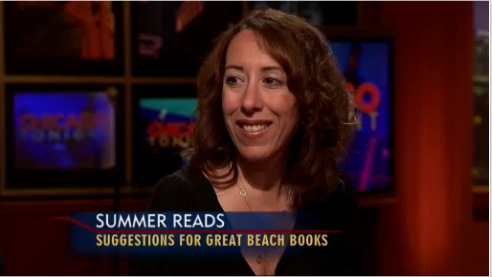 Last night, my excellent editor Gina Frangello was a guest on the TV show Chicago Tonight. Along with home-grown lit stars Audrey Niffenegger and Brigid Pasulka, Gina was supposed to recommend summer reads. Mark and I recorded the program, and I was all atwitter to see my friend and my book on the little screen. But we didn't fast forward to the books segment. I haven't watched TV in a week, maybe two, and I haven't watched a local news broadcast like Chicago Tonight in who knows how long...
Last night, my excellent editor Gina Frangello was a guest on the TV show Chicago Tonight. Along with home-grown lit stars Audrey Niffenegger and Brigid Pasulka, Gina was supposed to recommend summer reads. Mark and I recorded the program, and I was all atwitter to see my friend and my book on the little screen. But we didn't fast forward to the books segment. I haven't watched TV in a week, maybe two, and I haven't watched a local news broadcast like Chicago Tonight in who knows how long...

